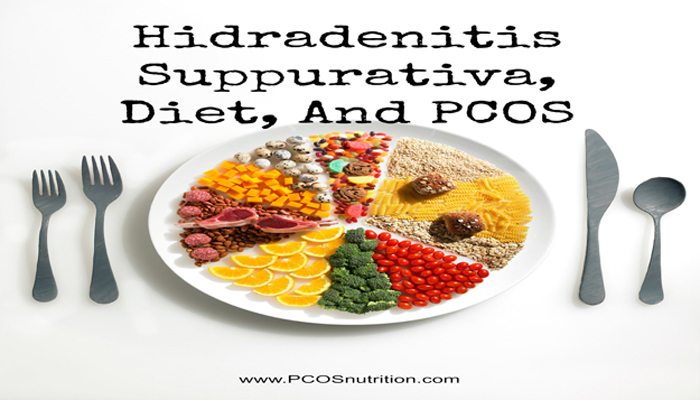Apply Now
Effective Ways to Optimize the Low Carb Mediterranean Diet in 2025
The Low Carb Mediterranean Diet merges the traditional principles of the Mediterranean diet with the efficiency of low carbohydrate meals, creating a nutritional powerhouse for health-conscious eaters. In 2025, as more people become aware of the health benefits associated with diet modifications, optimizing this eating plan is crucial. Adopting the low carb Mediterranean diet can support weight loss, improve heart health, and better manage blood sugar levels, making it an attractive choice for many.
By focusing on healthy fats, high-protein foods, and low-carb vegetables, individuals can enjoy a diverse range of delicious meals while still adhering to the dieting principles. This article will delve into effective strategies for optimizing a low carb Mediterranean diet, provide meal prep ideas, discuss healthy snacks, and share tips for incorporating traditional Mediterranean flavors without compromising on your carbohydrate intake. Key takeaways will include the importance of healthy fats, the role of Mediterranean herbs and spices, and creative recipe adaptations that anyone can incorporate into their lifestyle.
Key Principles of the Low Carb Mediterranean Diet
Building upon the well-documented Mediterranean diet that emphasizes whole foods and healthy fats, the low carb Mediterranean diet typically aims to reduce carbohydrate intake while maintaining a rich palette of flavors.
Understanding Mediterranean Diet Principles
The Mediterranean diet is built around whole foods like fruits, vegetables, whole grains, healthy fats like olive oil, nuts, and fish. The core essence of this diet advocates for long-term health benefits, including improved heart health and lower rates of chronic diseases. When merging this with low carb principles, the focus shifts to selecting nutrient-dense foods while minimizing high-carb options.
Healthy Fats in the Mediterranean Diet
Integrating healthy fats, such as olive oil, avocados, and nuts, provides necessary calories while keeping carbohydrate content low. These fats not only contribute to satiety but also offer essential heart-healthy benefits. Studies have shown that meals rich in healthy fats can help maintain blood sugar levels, making them a fundamental aspect to captain low carb Mediterranean nutrition effectively.
Low Carb Vegetables and High Protein Foods
Low carb vegetables, including leafy greens, zucchini, and bell peppers, play a significant role in creating colorful, nutrient-rich plates. Pairing these with high-protein sources such as fish, chicken, and legumes increases satisfaction without the burden of excess carbohydrates. These combinations also allow for the fulfillment of daily nutritional needs without sacrificing flavor.
Meal Prep Strategies for Low Carb Mediterranean Success
Meal preparation is an essential tool for effectively adhering to a low carb Mediterranean diet. It can save time and foster healthy eating habits.
Creating a Mediterranean Meal Plan
When crafting a weekly meal plan focused on low carb Mediterranean principles, consider diverse meal options. Incorporate high protein Mediterranean meals in multiple forms—stews, grilled options, or baked dishes. Planning a variety of low carb snacks, such as olives and nuts, ensures that cravings are managed effectively.
Low Carb Cooking Techniques to Try
Emphasizing cooking techniques like grilling, steaming, and roasting brings out bold flavors without the addition of unnecessary carbohydrates. Grilling fish and vegetables enhances their natural flavors, while roasting creates a delightful texture in low carb vegetables. Using quality herbs and spices can also enrich these dishes significantly, making meals both healthy and delicious.
Incorporating Low Carb Snacks
Having available low carb snacks is vital for maintaining energy levels and preventing unhealthy cravings. Options like homemade dips using healthy fats, olives, and assorted vegetables can satiate while keeping carbohydrate levels in check. Preparing these snacks in advance further supports dietary adherence.
Delicious Low Carb Mediterranean Recipes
Experimenting with a variety of recipes enables seamless integration of low carb Mediterranean eating into daily life.
Keto-Friendly Mediterranean Fish Recipes
Fish, particularly fatty varieties like salmon and mackerel, are rich in omega-3 fatty acids and offer wonderful flavor combinations. Experimenting with herbs, lemon, and olive oil can offer various delectable fish dishes that adhere to the low carb framework while promoting health benefits associated with Mediterranean cooking.
Low Carb Mediterranean Appetizers
Appetizers are an excellent way to introduce guests to the low carb Mediterranean diet. Options like whipped feta dip paired with low carb vegetables serve both as an inviting start to meals and conform to dietary principles. Utilizing traditional flavors, such as herbs and spices, ensures these appetizers never taste bland.
Creative Low Carb Salads
Salads serve as a cornerstone of the Mediterranean diet and can easily be adapted to low carb requirements. Incorporating nutrient-dense components like leafy greens, olives, nuts, and fresh herbs can yield satisfying meals without excess carbohydrates. Consider hearty salad variations that incorporate proteins and healthy fats to make them filling and nutritionally balanced.
Health Benefits of a Low Carb Mediterranean Diet
Emphasizing a low carb Mediterranean diet not only provides delectable meals but also presents various health advantages.
Weight Loss and Management
Research suggests that low carb diets can effectively aid in weight loss by promoting satiety and reducing overall calorie intake. The healthful components of the Mediterranean diet further enhance this benefit, creating a sustainable approach to weight management.
Heart Health and Blood Sugar Control
The low carb Mediterranean diet positively influences heart health through its focus on healthy fats and nutrient-dense foods, which may support lower cholesterol levels and improved circulation. Additionally, managing carbohydrate intake can result in better blood sugar control, vital for those with diabetes or insulin sensitivity.
Building a Sustainable Eating Lifestyle
The principles of the Mediterranean diet promote a lifestyle that leads to sustainable eating habits rather than quick fixes. By integrating low carb strategies, individuals can benefit long-term from readily available foods that nourish the body.

Essential Tips for Low Carb Mediterranean Eating
Utilizing effective strategies can significantly simplify the experience of adhering to a low carb Mediterranean diet.
Choosing Whole Foods for Nutritional Density
Selecting whole foods devoid of processed sugars is essential for optimizing nutritional intake. Aim to fill your grocery cart with fresh produce, healthy proteins, and healthy fats, emphasizing the Mediterranean way of eating.
Exploring Mediterranean Herbs and Spices
Enhance meals by exploring a variety of Mediterranean herbs and spices, which not only pack flavor but also contribute to overall health. Flavor boosters like oregano, basil, and rosemary not only save you from monotonous meals but add excitement to your culinary endeavors.
Balancing Macronutrients and Portion Control
Understanding macronutrients is vital for achieving balanced meals. While low carb options are encouraged, ensuring sufficient intake of protein and healthy fats is equally important for optimal health. Learning about appropriate portion sizes can play a key role in sustaining energy levels throughout the day.

Frequently Asked Questions about Low Carb Mediterranean Diet
Is the low carb Mediterranean diet suitable for beginners?
Yes, the low carb Mediterranean diet can be effectively adapted for beginners by simplifying meal preparation and focusing on essential, nutrient-dense ingredients.
What are some common misconceptions about low carb eating?
Many assume that low carb diets lead to nutrient deficiencies; however, when executed with a focus on whole foods, this diet can provide a wealth of vitamins and minerals.
How can social events be managed while adhering to this diet?
Planning ahead and opting for low carb appetizers or main dishes when dining out can assist you in staying true to your dietary goals while enjoying social engagements.
Conclusion
Embracing the low carb Mediterranean diet in 2025 is an advantageous step toward sustainable health for many. By integrating healthy fats, nutrient-dense options, and delicious Mediterranean flavors, individuals can enjoy optimal health benefits while still indulging in satisfying meals. By planing and preparing ahead, you can efficiently navigate this culinary landscape and make choices that are not just delicious, but also supportive of your health goals.


